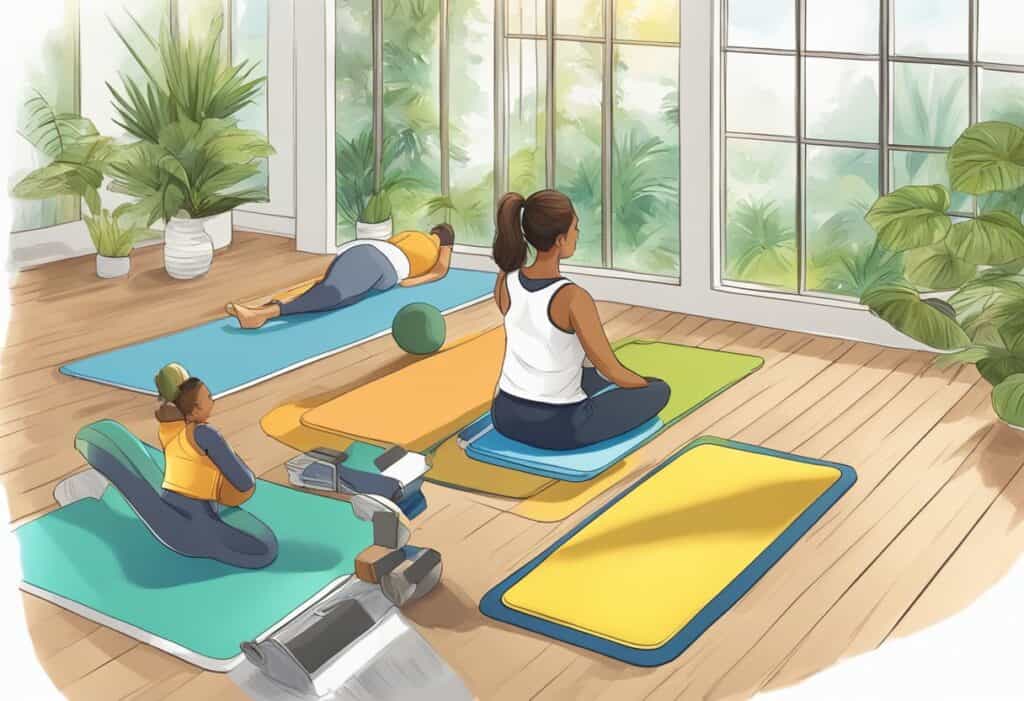Anxiety is a reality in many people’s lives worldwide. While there are various ways to manage anxiety, engaging in leisure activities to reduce anxiety is a proactive way to begin. By participating in activities that bring you pleasure, satisfaction, and a sense of accomplishment, you can make great strides toward reducing your anxiety.
Understanding Anxiety and Stress
Dealing with anxiety and stress can be arduous and significantly impact your overall wellbeing. By accepting these emotions as part of your lived experience, you can take the necessary steps to manage them effectively, preventing them from overwhelming and interfering with your daily life. You may seek professional help, practice relaxation techniques, get enough rest, and exercise regularly.
There are several types of anxiety disorders, each with unique symptoms and manifestations:
- Generalized Anxiety Disorder (GAD): Characterized by excessive and persistent worry about everyday situations. You might worry about work, family, health, or financial issues, even when there is no apparent reason for concern.
- Panic Disorder: Involves sudden and intense feelings of fear or terror, which may also be accompanied by a racing heart, sweating, or trembling. These panic attacks can occur unexpectedly or may be triggered by specific situations.
- Social Anxiety Disorder: It can be challenging to cope with Social Anxiety Disorder as you can feel anxious and worried about social situations, leading to difficulty making eye contact, giving public speeches, or interacting with new people.
- Phobias: Intense and irrational fears of specific objects or situations, such as heights, spiders, or flying. Phobias can significantly impact your daily life if you go to great lengths to avoid the source of your fear.
- Obsessive-Compulsive Disorder (OCD): Characterized by recurring thoughts or mental images that cause anxiety and repetitive behaviors that you feel compelled to perform to alleviate the anxiety.
- Post-Traumatic Stress Disorder (PTSD): Develops after a traumatic event, whether experiencing or witnessing the event, such as a natural disaster, accident, or assault. PTSD symptoms can include flashbacks, nightmares, and heightened anxiety, particularly when reminded of the trauma.
Understanding the type of anxiety disorder you are dealing with can help you develop effective strategies to manage your symptoms. Engaging in leisure activities is a strategy shown to reduce anxiety and stress, making it an essential component of a balanced lifestyle.

Why Leisure Activities Reduce Anxiety
Participating in leisure activities can help your body release endorphins, natural mood enhancers. Endorphins are chemicals your brain produces that act as natural painkillers and help improve your overall sense of wellbeing. Activities such as exercise, dancing, or listening to music can trigger the release of these feel good hormones, making you feel more relaxed and less anxious.
Engaging in leisure activities can also positively impact your heart rate. When you are stressed or anxious, your body releases stress hormones like cortisol and norepinephrine, which can increase your heart rate and blood pressure. Participating in leisure activities helps counteract this effect by promoting relaxation and decreasing the release of these stress hormones. As a result, your heart rate slows down, and your body becomes more relaxed, which may help alleviate anxiety and stress symptoms.
Regularly engaging in leisure activities can boost your resilience and adaptability, making it easier to bounce back from stressful situations and manage anxiety. By pursuing hobbies and interests, you are actively nurturing your psychological wellbeing, helping you develop coping mechanisms for dealing with stress. Moreover, leisure activities often require problem solving and adaptability, essential skills for navigating life’s challenges.
As you become more proficient at handling difficult situations in your leisure pursuits, you may find that your anxiety decreases, and your overall resilience and ability to cope with anxiety are also enhanced.
Maintaining a balance through the inclusion of leisure activities effectively supports your body’s functions and overall health.
Various hobbies, such as artistic pursuits, have been shown to lower cortisol levels, one of the primary hormonal markers of stress and anxiety. As a result, incorporating leisure activities plays a crucial role in managing anxiety and maintaining a healthy state of mind.

The Role Of Leisure Activities To Reduce Anxiety
Incorporating physical activities into your daily routine can significantly reduce anxiety. Exercise, for instance, releases endorphins, which act as natural mood enhancers. Activities such as walking, jogging, running, swimming, cycling, and dancing effectively release this natural mood enhancer.
Practicing mental relaxation techniques can also help alleviate anxiety. One effective method is meditation, which lets you focus on your thoughts and breathing while promoting a sense of calmness.
Another accessible activity is writing, where you can journal your thoughts and feelings. Curling up with a good book and getting lost in its pages is also a way to relax and let your mind wander.
Nurturing social connections can play a significant role in easing anxiety. Social activities such as joining clubs, participating in group sports, or attending social gatherings provide opportunities for interaction and support. Such social interactions help you feel a sense of belonging, take your mind off your worries, and create an enjoyable distraction from the stressors in life.
A healthy lifestyle is essential for managing anxiety and improving your overall wellbeing. Here are some self care tips for participating in leisure activities to reduce anxiety
Regular movement: Stick to a consistent movement or exercise program and build upon it over time. Focus on self care practices to manage anxiety, such as deep relaxation techniques like meditation, yoga, or mindfulness.
Adequate sleep: Sleep is crucial in maintaining a healthy lifestyle. Getting enough rest is essential for managing anxiety and ensuring your mind and body function optimally. Set yourself up for success by establishing a regular sleep schedule and stick to it whether you are tired or not to maximize the benefits.
Nutrition: Food is not only a fuel source for our energy but is also a vital component in dealing with anxiety. Food supplies the body with the building blocks of carbohydrates, proteins, vitamins, and minerals needed for various functions such as growth, repair, and immunity.
Hydration: Dehydration can negatively impact our mood, energy levels, and cognitive function. Keep your body hydrated and functioning properly.
Limitations and Considerations: While leisure activities can help reduce anxiety, it’s essential to consider limitations and factors affecting their effectiveness. Certain leisure activities may not be suitable for some individuals due to health considerations, so consult a Therapeutic Recreation specialist or healthcare professional before engaging in new activities.

Final Thoughts
By participating in diverse leisure activities, from physical or outdoor pursuits to home based offline hobbies or screen based digital ones, you can find ways to manage your anxiety in a tailored manner. Combining different leisure activities can provide balance and allow you to maintain a healthier mindset. By incorporating leisure activities into your routine, you are actively taking control of your anxiety and fostering a sense of balance in your life.
Frequently Asked Questions
What are practical leisure activities for anxiety reduction?
Practical leisure activities for anxiety reduction include those that promote relaxation and mindfulness, such as deep breathing exercises, yoga, and meditation. Other activities, like gardening, walking, or spending time in nature, can also help alleviate stress. Additionally, creative hobbies, such as painting, writing, or playing a musical instrument, have been found to reduce stress and improve overall wellbeing.
Can engaging in recreational activities lower anxiety levels?
Yes, recreational activities can lower anxiety levels by providing a positive outlet, allowing you to focus on something enjoyable. By participating in activities that you find enjoyable and challenging, you can improve your mental, emotional, and physical wellbeing.
What are the health benefits of having leisure pursuits?
Leisure pursuits offer numerous health benefits, including improved mental health, reduced stress, and increased self-esteem. They also provide opportunities for social interaction and support, contributing to overall health. Additionally, leisure activities can improve cognitive function, enhance creativity, and foster a sense of accomplishment and purpose.






